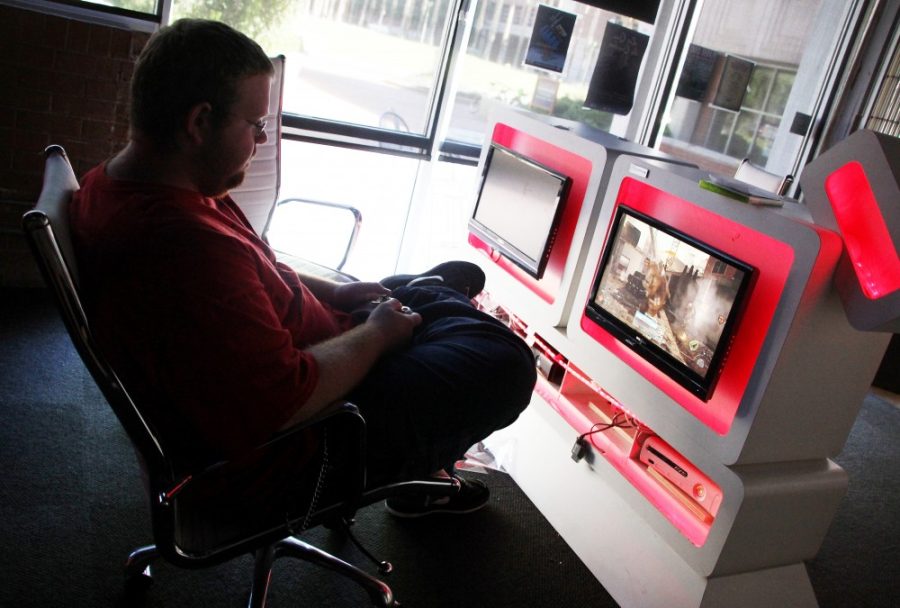Whether it’s classified as an addiction or not, there’s little doubt that excessive video game playing can cause students a lot of problems.
Failing classes, straining their eyes and spending money they shouldn’t on video games are potential issues “addicts” can face, said Debra Cox-Howard, mental health clinician at Counseling and Psychological Services. She said she sees one to two video game addicts a month.
Playing video games becomes an addiction when it severely interferes with someone’s daily routine, she said. Boredom, a sense of power from defeating other people and doing things they can’t in real life draws users in. Before they know it, they’ve spent an entire day playing video games.
“It’s more of a problem at the UA than we’re aware of,” she said. “Some people get high off of video games, just like if they were using a mood-altering substance. It hurts students the most when they try concentrating on their studies.”
Forrest Jenkins, a pre-veterinary junior, said he’s addicted to video games, but it doesn’t affect his grades.
“If I stopped drinking, I’d be way better off than if I stopped playing Call of Duty,” he said.
Steve Rains, associate professor of communications, said video game addiction is not recognized as a disorder in the newest edition of the Diagnostic and Statistical Manual of Mental Disorders. Rains said the manual is considered the authority on what classifies as a disorder.
Pop culture uses “addiction” to refer to an excessive amount of time spent doing something, but it means something completely different to academics and health professionals, Rains said.
People call someone a “Facebook stalker” but nobody really thinks they’re an actual stalker. It’s the same kind of word misuse, Rains said.
Alexa Ballar, a pre-physiology freshman, said video game addiction doesn’t exist.
“People don’t become dependant on video games, they just lack self control,” she said. “Alcohol is an addiction, a video game is … um … you just need to grow up.”
But video games can be as addictive as alcohol, Cox-Howard said. Similar to drugs, video game addiction is classified on a case-by-case basis.
“It’s not a diagnosis that we can give someone like we could if they had substance abuse problems, but it has some of the same characteristics,” she said. “And that’s why we call it a video game addiction.”
Two weeks ago, Cox-Howard walked by the CODE, the video game center in the Park Student Union, and saw it full of students. One of the students told his friend he didn’t even know what time it was because he had playing games for so long, she said.
Ken Teng, an attendant at CODE, said customers don’t stay long enough to be considered addicts, but several of his friends are and spend 15 to 20 hours playing each day.
“On the weekends when we want to hang out or do something, they’d rather play their video games,” he said.
Teng said they would skip class to play video games, it affected their GPA’s and some of them dropped out of school.
Tyler Wallace, a computer science sophomore, said nothing’s wrong with students playing video games, but it becomes an addiction when they start worshipping their Xboxes.
“They just play video games, that’s the sole purpose of their lives,” Wallace said.
Students don’t usually come into CAPS asking for help with video game addiction. It morphs into that from a discussion about time management and poor grades, Cox-Howard said.
Campus Health Service does not have specific programs or seminars about video game addiction, but Cox-Howard said it’s something that should be considered.
CAPS gives video game addicts the skills they need to balance their lives by helping them construct better schedules, encouraging them to be out in public more often and setting benchmarks for them to reach. Cox-Howard said students receive five to seven counseling appointments for a video game addiction.
“I’m not saying ‘Oh my gosh, video games are bad and you should stay away from them.’ Not at all,” Cox-Howard said. “Remember what you’re here for, have fun and keep a balance.”









